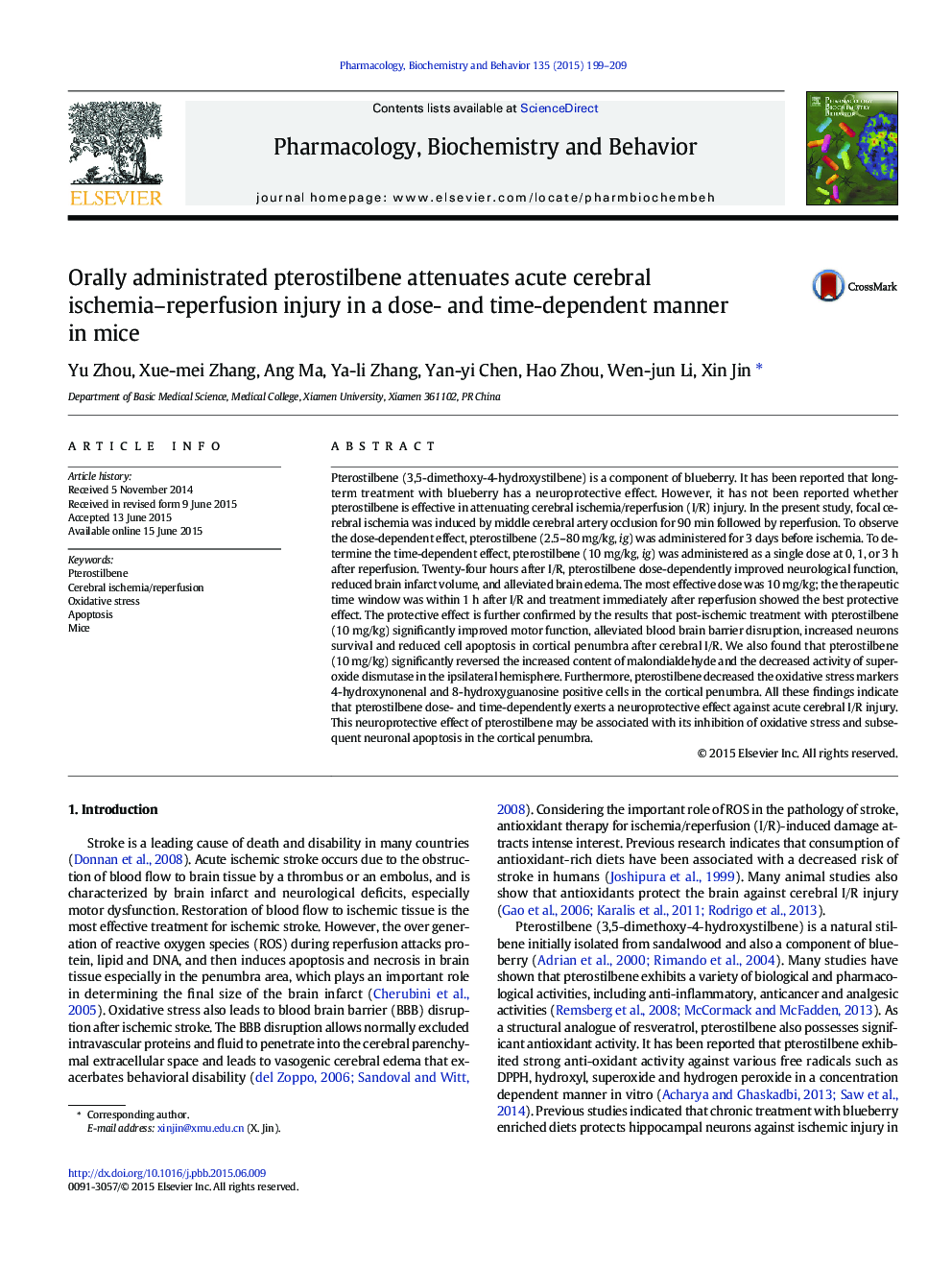| Article ID | Journal | Published Year | Pages | File Type |
|---|---|---|---|---|
| 8350532 | Pharmacology Biochemistry and Behavior | 2015 | 11 Pages |
Abstract
Pterostilbene (3,5-dimethoxy-4-hydroxystilbene) is a component of blueberry. It has been reported that long-term treatment with blueberry has a neuroprotective effect. However, it has not been reported whether pterostilbene is effective in attenuating cerebral ischemia/reperfusion (I/R) injury. In the present study, focal cerebral ischemia was induced by middle cerebral artery occlusion for 90Â min followed by reperfusion. To observe the dose-dependent effect, pterostilbene (2.5-80Â mg/kg, ig) was administered for 3Â days before ischemia. To determine the time-dependent effect, pterostilbene (10Â mg/kg, ig) was administered as a single dose at 0, 1, or 3Â h after reperfusion. Twenty-four hours after I/R, pterostilbene dose-dependently improved neurological function, reduced brain infarct volume, and alleviated brain edema. The most effective dose was 10Â mg/kg; the therapeutic time window was within 1Â h after I/R and treatment immediately after reperfusion showed the best protective effect. The protective effect is further confirmed by the results that post-ischemic treatment with pterostilbene (10Â mg/kg) significantly improved motor function, alleviated blood brain barrier disruption, increased neurons survival and reduced cell apoptosis in cortical penumbra after cerebral I/R. We also found that pterostilbene (10Â mg/kg) significantly reversed the increased content of malondialdehyde and the decreased activity of superoxide dismutase in the ipsilateral hemisphere. Furthermore, pterostilbene decreased the oxidative stress markers 4-hydroxynonenal and 8-hydroxyguanosine positive cells in the cortical penumbra. All these findings indicate that pterostilbene dose- and time-dependently exerts a neuroprotective effect against acute cerebral I/R injury. This neuroprotective effect of pterostilbene may be associated with its inhibition of oxidative stress and subsequent neuronal apoptosis in the cortical penumbra.
Related Topics
Life Sciences
Biochemistry, Genetics and Molecular Biology
Biochemistry
Authors
Yu Zhou, Xue-mei Zhang, Ang Ma, Ya-li Zhang, Yan-yi Chen, Hao Zhou, Wen-jun Li, Xin Jin,
